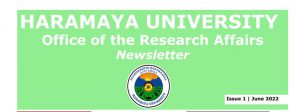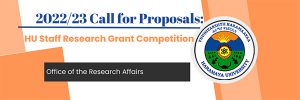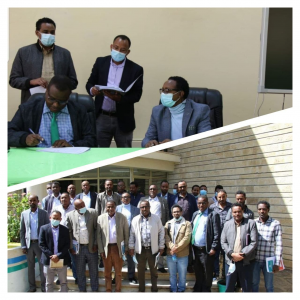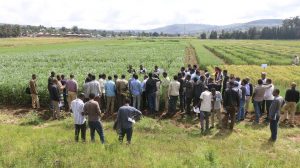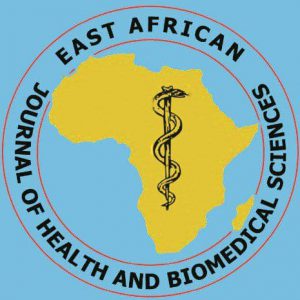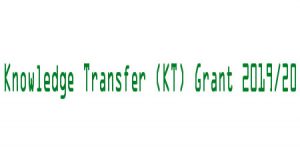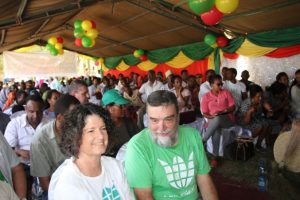Annual Research, Extension and Community Engagement Workshop Conducted
The 35th Annual Research, Extension and Community Engagement Workshop was conducted at Haramaya University from March 29-31, 2018.
The workshop has always been a way for a dialogue between the University and members of the community as well as governmental and non-governmental organizations, Farmer Training Centers (FTCs), model farmers and coops and unions.
 Dr. Jemal Yousuf, Vice-president for Research Affairs, in his key note speech said, “In order for us [the University and its community] to remain competitive, in addition to conducting cutting-edge scientific research, we are also expected to serve as intellectual hubs, providing knowledge, support, and innovative solutions to local communities, government sectors and other stakeholders. For this purpose, we need to establish effective and meaningful partnership with local private and public sectors players to establish regional center of excellence, innovation hubs, and state of the art laboratories, digital/data centers that would enable informed research and development interventions among others.”
Dr. Jemal Yousuf, Vice-president for Research Affairs, in his key note speech said, “In order for us [the University and its community] to remain competitive, in addition to conducting cutting-edge scientific research, we are also expected to serve as intellectual hubs, providing knowledge, support, and innovative solutions to local communities, government sectors and other stakeholders. For this purpose, we need to establish effective and meaningful partnership with local private and public sectors players to establish regional center of excellence, innovation hubs, and state of the art laboratories, digital/data centers that would enable informed research and development interventions among others.”
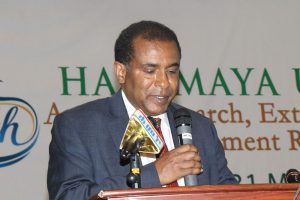 Prof. Chemeda Fininssa, President of the University, on his part said, “The efforts and achievements of the University’s research and extension should be supported by research in order to transform the new technology contribution for the national development.” He further explained that the University is working its part to contribute for the sector transformation by producing skilled manpower, conducting cutting-edge researches on the sector and giving short term training for cooperatives.
Prof. Chemeda Fininssa, President of the University, on his part said, “The efforts and achievements of the University’s research and extension should be supported by research in order to transform the new technology contribution for the national development.” He further explained that the University is working its part to contribute for the sector transformation by producing skilled manpower, conducting cutting-edge researches on the sector and giving short term training for cooperatives.
The first day of the workshop saw more than 370 participants and Competence Assurance Certificate was given to nine cooperatives the University works with. The certificate was issued based on the Seed Proclamation No. 782/2013 Article 20 to produce crop seeds of certified class. The seed multiplication cooperatives: Awbare (wheat), Haji Faji (potato), Lelisa Ifadin (sorghum), Oda Ifa (maize), Bishan Babile (maize), Fula Hunda Tofik (maize), Awsherif Barisa (maize), Lega Hamaresa (maize) and Jalela Gudina (maize & wheat) have shown promising progress and the University has awarded their hard work through recognizing their potential and certifying them so that they are able to produce crop seeds of certified class and provide for the market.
Four presentations were made focusing on research extension activities of the University, activities undertaken by BENEFIT-ISSD in the area, community engagement and watershed management activities before the floor was opened for discussion. Many of the farmers were happy with the progress the University has made following the discussion they had last year on the 34th annual workshop and expressed their gratitude. The overall Internet presence of the journals under the Office was also indicated and the two AJOL indexed journals: East African Journal of Sciences and Law Review have had 4000 and 800 per month download and 33 and 38 country views were recorded respectively. The Office has also improved its webpage and has added new features on the University’s official website. Now, externally funded projects, articles published by researchers from the University, and project and article registration as well as other office forms can be found and downloaded from the website.
Another addition to this year’s workshop is the availability of policy briefs to participants. The policy briefs were prepared in three languages: English, Amharic and Afan Oromo. The availability of these briefs would help in reaching the local community with new research outputs, technological advancements and improved extension works.
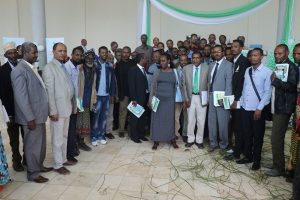 In the last two days of the workshop, research activities funded by the University’s grant were presented. A total of 57 research activities were presented with the final discussion concerning research grant, proposal review committee, research facilities and laboratories, etc. was held with the University’s top management.
In the last two days of the workshop, research activities funded by the University’s grant were presented. A total of 57 research activities were presented with the final discussion concerning research grant, proposal review committee, research facilities and laboratories, etc. was held with the University’s top management.

